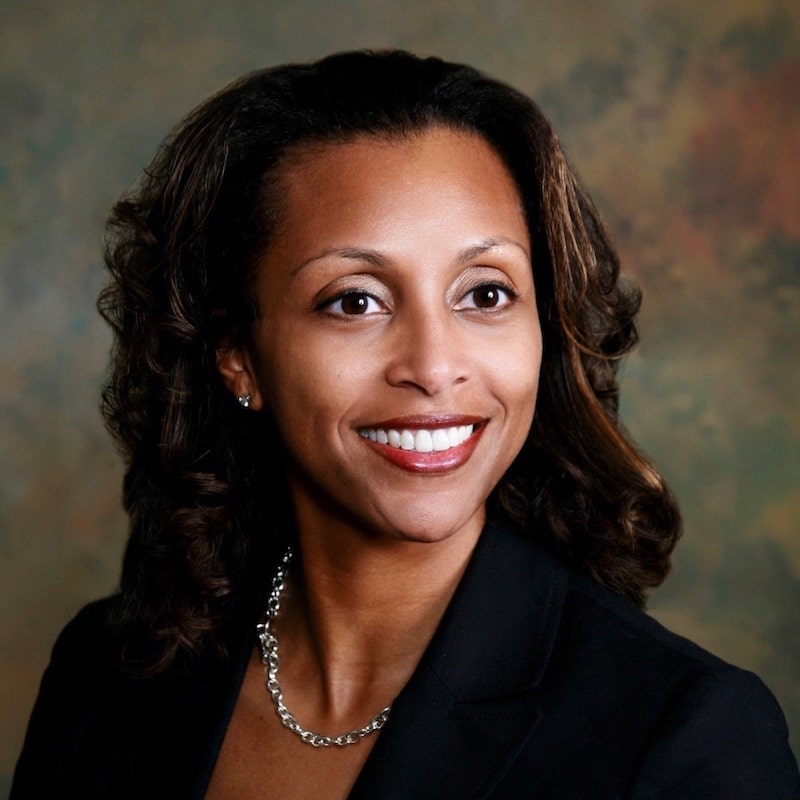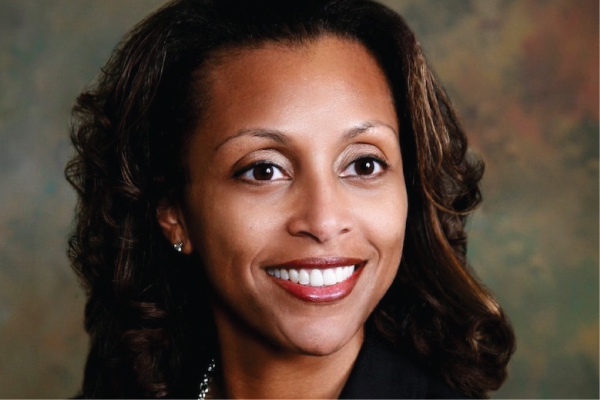Nicole Franks, MD, was honored with the 2019 Dr. Wes Curry Emergency Medicine Diversity Leadership Award at Vituity’s Seventh Annual Executive Leadership Diversity Summit. Dr. Franks is Chief Quality Officer at Emory University Hospital Midtown, an Associate Professor of Emergency Medicine at Emory University School of Medicine, an Emory Healthcare board member, and a practicing physician. She co-founded Emory’s Administrative Fellowship in Emergency Medicine and currently serves as the program’s codirector.
To start us off, can you tell us how your commitment to diversity in healthcare has shaped your career?
Dr. Franks: When it comes to diversity and inclusion, I think we sometimes get lost in the weeds. There are lots of opportunities to go out and talk about diversity in healthcare, to advocate for it, and to teach people about what's going on. But I think it's another thing to actually be in a position where you can do something about it.
To me, being a leader means recognizing what my position can do for diversity, equity, and inclusion. I want to make sure that I leverage my influence to advocate for these values in terms of both patient care and physician opportunity.
I understand you started your leadership journey early. What inspired you to lead as a resident and new attending physician?
Dr. Franks: Early on, I realized that I very much enjoyed the microcosm of the hospital. I think I’m drawn to hospital leadership for the same reasons I chose emergency medicine. In both the ED and the hospital, every day is different, and there are so many people to talk to, collaborate with, and learn from.
I was also inspired by my early mentor, Dr. Leon Haley, our former Chief of Emergency Medicine at Grady Memorial Hospital [Emory Healthcare’s safety net hospital]. He really embodied the idea of leading through influence. His friendship, advocacy, and example definitely shaped my path as a young physician.
Tell us a little about your road to leadership.
Dr. Franks: Coming out of residency, I had a 10-year goal to become a hospital leader. I worked hard to earn an assistant medical director position and began climbing the proverbial leadership ladder.
It wasn’t easy. When I first started out, I was often one of the youngest people in the room. But I kept showing up, kept learning and growing and looking for new ways to contribute. And over time, more and more people began to believe in me.
Within 10 years, I was able to become a hospital leader—and eventually a physician executive as well. Today, as Chief Quality Officer, I get the privilege of coaching and inspiring teams across the hospital, knowing we’re making a difference when it comes to patient safety and outcomes.
What are some of the most important steps that hospitals and health systems can take to improve the care of diverse patients?
Dr. Franks: In addition to acknowledging the existence of disparities, we also need to examine our individual biases and how they contribute to the problem. Biases aren’t shameful. They're just part of us. But only after we acknowledge them can we translate that awareness into better, more equitable patient care.
Another way to prevent disparities is to standardize practice. Medicine is an art as well as a science, but sometimes treating a patient like a unique artwork allows bias to influence our clinical decisions. In this day and age, we have enough evidence to approach patient care in a standardized fashion, which helps to prevent care gaps created by unconscious bias.
Finally, we need to make medical research as inclusive as possible. Historically, people of certain ethnicities, socioeconomic statuses, and geographic regions have been underrepresented in studies and clinical trials. There's an NIH project called All of Us that’s trying to engage more people in the research process so we can get a clearer picture of how medical problems show up in every unique individual.
In your opinion, why is it important to diversify our medical workforce and leadership?
Dr. Franks: As a profession, we have to reflect the patients that we take care of. That doesn’t necessarily mean looking like our patients or sharing their life experiences. But it does mean developing our cultural competency, which is our ability to understand, to communicate across cultures.
Having representation around the table—and especially in leadership—is one way to foster cultural competency in healthcare. Through daily teamwork, we teach each other who we are and who we can be together.
When it comes to diversifying our medical workforce and leadership, where do we start?
Dr. Franks: I think it’s important to reach people as early as possible—as soon as they’re ready to consider career choices. We need to be creative and intentional about presenting opportunities to them, whether through pipeline programs, events, mentorship, social media, and all the other channels available.
For every program that I'm involved in, I try to make sure that's part of what I leave behind. I previously served on the board of a community organization whose leadership really did not reflect the community we served. So we actually made attracting and nurturing diverse talent part of our strategic plan. We worked on developing clear paths to leadership and promoting those to both the community and our existing workforce.
Of course, things didn’t change overnight. But we definitely set some positive change in motion that will multiply in the years to come.
There’s been some high-profile coverage in the media lately about discrimination in some medical schools. What can be done to combat this?
Dr. Franks: Well, I think medical schools are just a reflection of what is going on in society as a whole. Many of our institutions have historically provided advantage to certain groups. But now we’re a different country, and once we acknowledge that, we’ll be so much stronger.
One crucial shift we can make as leaders—including medical school leaders—is to start framing diversity as a strength. Many people still see equity as a weakness, and as a society, we’re very intolerant of any weakness or disadvantage. But different perspectives and different points of view don’t break us down or threaten us. They actually make us stronger. And once we buy into that, that's how we'll continue to move forward.
What are you excited for next?
Dr. Franks: Finding opportunities to develop leaders and physician leaders! I’m working with our current Emergency Medicine Administrative Fellow, and I’m also mentoring several students through our pipeline programs, creating pathways from undergraduate, to medical student, to resident and fellow, to junior faculty. There’s such a joy in being a teacher, because you see people struggle with a concept—and then suddenly, a light goes on. That moment really makes all the hard work worth it for me.
























